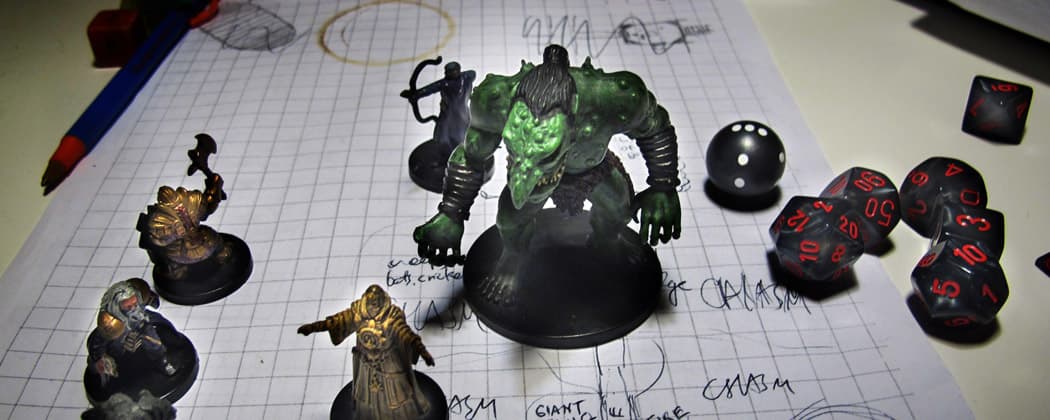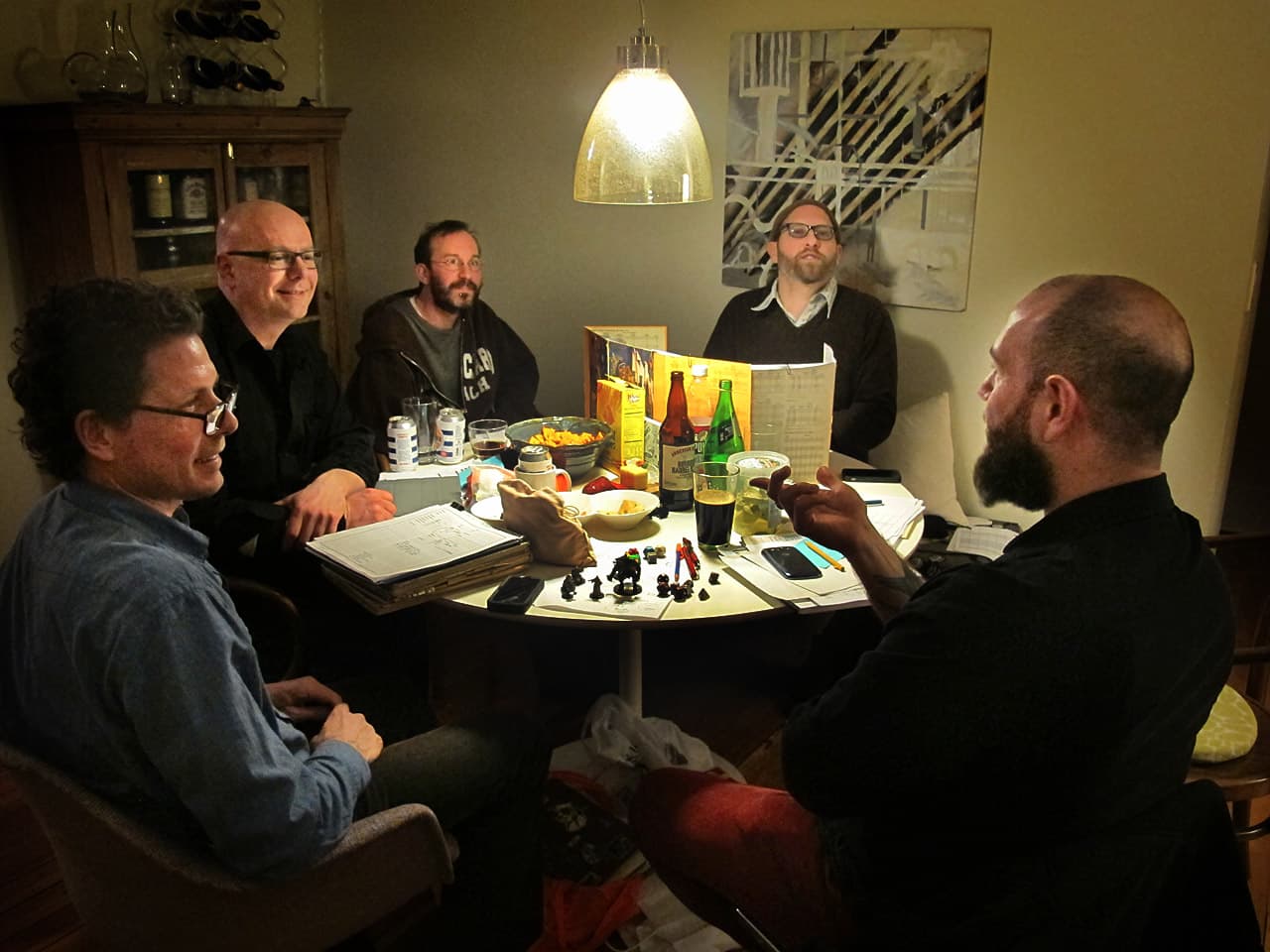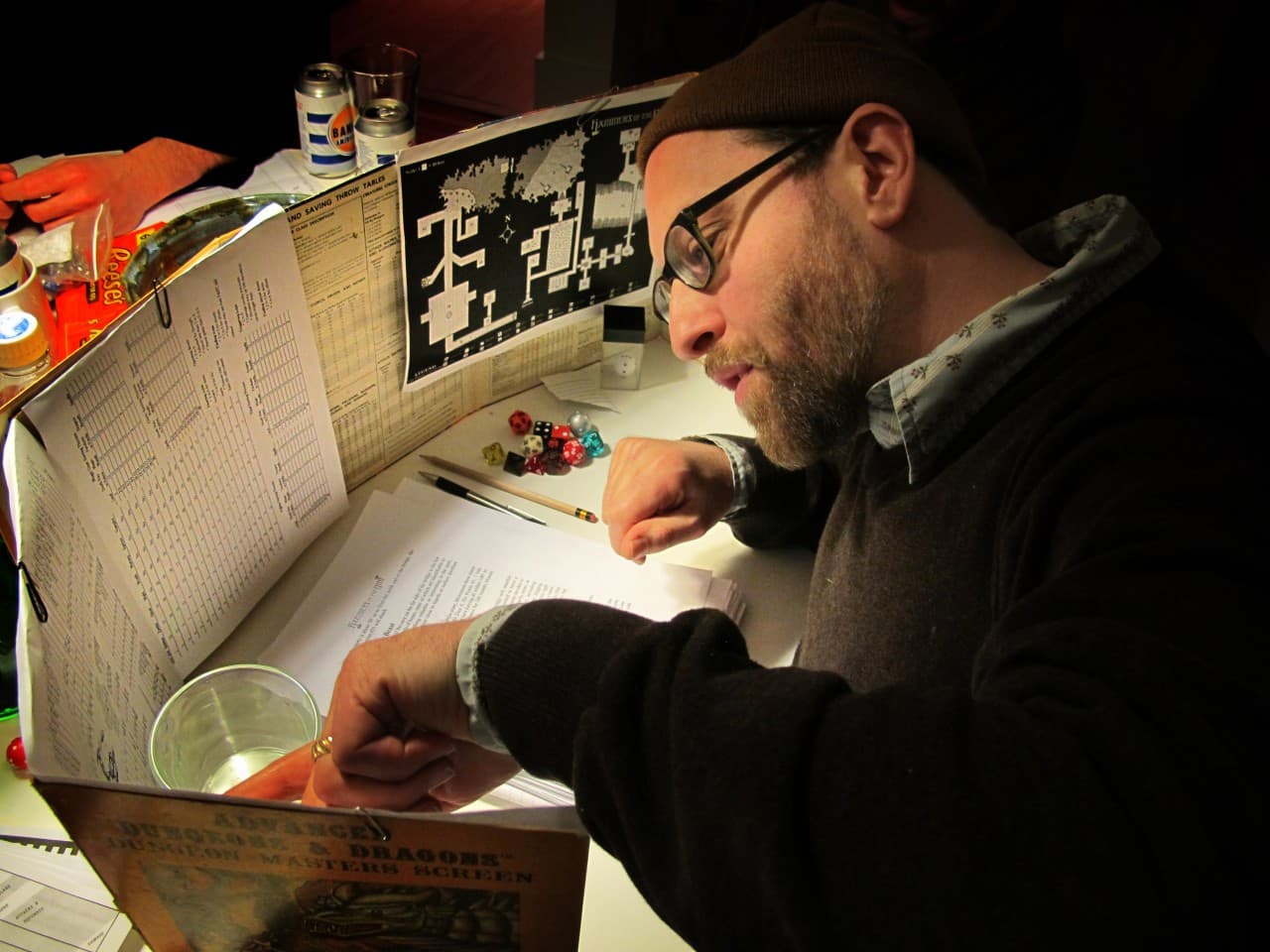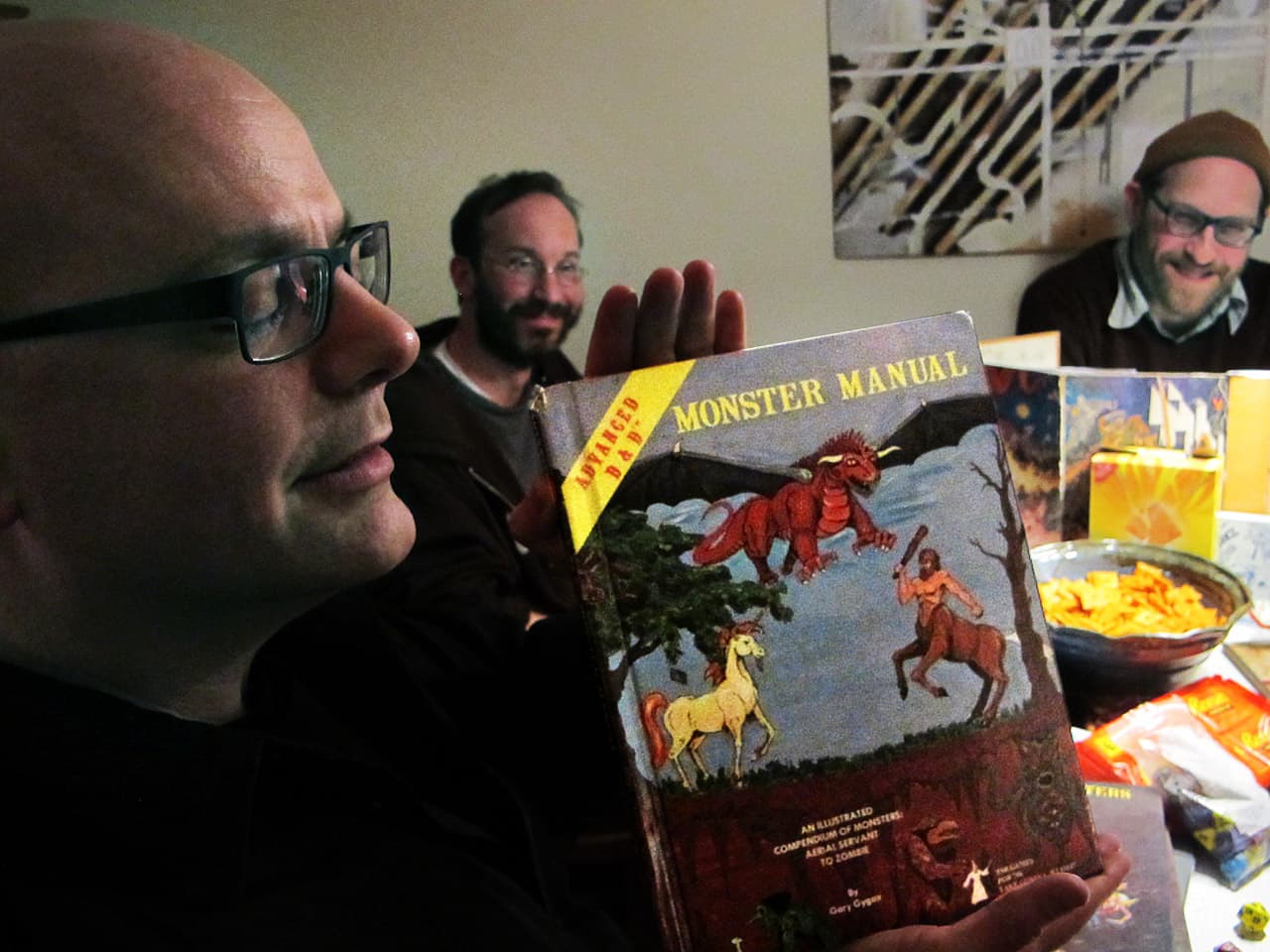Advertisement
As Dungeons & Dragons Turns 40, Celebrating Its Ability To Unleash Unbridled Creativity
Resume
Fans of the table-top fantasy game Dungeons & Dragons are celebrating its 40th birthday this year. Somerville geek-culture writer (and Cognoscenti contributor) Ethan Gilsdorf is one of them. He played as a teen in the 1970s and '80s. But now, at age 47, Gilsdorf is on a quest to vanquish D&D’s nerdy baggage by highlighting the role-playing game’s unique powers. He says it can unleash unbridled creativity. To prove he’s not alone, Gilsdorf invited me to experience his adult D&D group that comes to the table once every couple months.

I never played D&D as a kid, but a lot of my guy friends did. I remember their polyhedral dice, and how their gaming group seemed like an exclusive boys’ club or secret society.
“Very few are allowed past the outer keep and outer bailey into the inner sanctum,” Gilsdorf said, joking about the game's enduring reputation. "Except for my girlfriend Mary Ann who's hiding in the other room.”
The classically nerdy game has long been ripe fodder for parodies that often involve rooms littered with cans of soda and empty bags of Cheetos.
But Gilsdorf’s regular D&D night does not unfold in a musty basement or garage. Instead, six 40-something men convene around a dining room table in an attractive condo near Davis Square.
“It’s not just guys drinking Mountain Dew," Gilsdorf said with a laugh. "And in fact we had carrots earlier."
There were also pickles, apples and aged cheddar cheese.
Gilsdorf is bent on battling the pervasive stereotypes about who plays D&D and why. He got into the game as an awkward 12-year-old looking for like-minded peers in 1979. You can see him playing with his friends in this home video he posted on YouTube:
“I played seriously, religiously, you might even say obsessively, through most of high school,” Gilsdorf recalled. “I did stop playing, though, for many years. And like many of us, I think there is something about getting into our 40s — for those us who have children or are married — where there's just this return to our past and our childhoods in some way.”
But for this band of relapsed players, D&D is more than a geeky answer to a midlife crisis. The writers gathered here — a poet, a novelist and two nonfiction authors — see it as a potent act of collective storytelling. They say playing D&D improves their craft, and for Gilsdorf the experience is very different from when they were kids.
“There's less adolescent or pre-adolescent pissing contests or fart jokes," he said with a laugh. "Our humor is slightly more evolved, perhaps, since those days.”
And, liberated from the gauze of teen angst, Gilsdorf believes, their ability to craft coherent, intriguing narratives has matured too.

Culture critic Peter Bebergal’s face is partially hidden behind Gilsdorf’s vintage “Advanced Dungeons & Dragons Dungeon Master Screen.” He’s got a pile of multi-color/multi-sided dice, a pencil, a notepad, maps and pages of notes. As the dungeon master, he essentially lords over the story’s basic structure, but it’s improvisational.
“In a way we're writing a novel together,” Bebergal explained. “I don't know exactly what’s going to happen because I don't know what they're going to do."
Then, he added, "I’m going to make decisions on how to respond — and how the story might be shaped — based on what the players might do and how they might respond.”
During play, Bebergal describes a flailing monster that’s "sonically blasting" all over the room. Like Gilsdorf, he was into D&D as a teen — until he discovered girls. Now, with this group, the author has been building on the same plot for two years. It’s set in a theocratic world ruled by a king who has banished all forms of religion and magic in a kingdom populated by dwarves, elves and halflings.
“So part of the tension of this overall story is, what kind of a world do they want?” Bebergal explained.
The players toss around writerly phrases like plot lines, tension and character arcs. Published author Michael Marano says playing D&D is like doing push-ups for uninhibited, childlike creativity.

"As a novelist, as I write, part of me is always going, 'Oh, your editor is not going to like that. And your agent is going to tell you that's not salable,'" he said, laughing. "So I'm trying to rewire my brain back to that sort of fearlessness it had as a kid who would play D&D — rattling the dice, slathered with Oxy 10, sort of like 'Braveheart' war paint.”
Marano also said this type of interactive fiction helps ease his writer’s block. In this game — or campaign, as it’s called — his character’s name is Bor'ith.
“He's from a clan who's been in alliance with dwarves who have been exiled from this kingdom," Marano explained. "And he is kind of a messed-up guy. He's got PTSD. He's been fighting since he was 15, so he's got some issues.”
There’s also a complex Frankenstein-like character in this tale created by Gilsdorf’s brother-in-law, J.P. Glutting. He introduced Gilsdorf to D&D when they were kids and neighbors. Glutting now works at a catastrophic research modeling company, but says writing and playing D&D satisfies what he calls "a human need."
"Narrative is one of the ways we create sense — not necessarily meaning — out of our day-to-day experiences, and our history and our lives," said Glutting, who then asked, "Are we the hero? Are we a secondary character? Are we the author?"
Then there’s Ezra Glenn’s take. He’s an urban planner at MIT and a bit of an outlier here.
“I want to put in a plug for the nonfiction side of this," he said. "I mean, I love reading science fiction and fantasy, and I love playing it, but I think a big part of [D&D] early on — and still — is the nonfiction part of fiction," Glenn said. "People who are really excited about the world building.”
Meaning the maps and the economic systems players devise for D&D.
Gilsdorf said D&D translates to journalism, too. When he pitches stories to editors, they often ask about the "main characters" and the "central conflict."
"And that’s sort of the way people like to receive information--through a story, not just through a bunch of facts,” Gilsdorf said.
He then reminded me that a lot of successful, creative people have an affection and deep respect for D&D, including Pulitzer Prize-winning writer Junot Diaz, comedian and rocker Jack Black, actress Judi Dench and humorist Stephen Colbert — who noted the death of D&D co-creator Gary Gygax in 2008.
"Gary, you’ll be missed. How much will you be missed?" Colbert asked, rolling a polyhedral die. "Twenty. May your prismatic spray always bypass your target's reflex saving throw."
This article was originally published on March 05, 2014.

